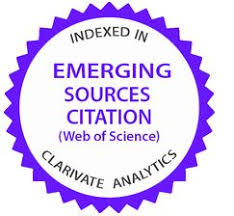Controlling Shareholder Ownership Structure and Conflict-Related Party Transactions
Abstract
ABSTRACT
Concentrated companies offer various types of shareholding structures either direct, indirect, or pyramidal ownership. The opportunist controlling shareholders may intend to utilize the complex nature of indirect and pyramidal shareholding to engage in related party transactions (RPT) by concealing or hiding their related party identity. We examine the association between controlling shareholder’s shareholding structure (direct shareholding (DCS), indirect shareholding (INDCS), and pyramid shareholding (PYRCS)) and RPT in Malaysia. Based on a sample of 580 companies listed on Bursa Malaysia from 2013 to 2017, we found that the controlling shareholders utilize all types of shareholding (DCS, INDCS, and PYRCS) to engage with RPT. These findings support the argument that the controlling shareholder is at the privilege to manipulate the various type of shareholding to get personal benefit through RPT. The findings also indicate that controlling shareholders with INDCS or PYRCS disclose a lower magnitude of RPT-conflict rather than controlling shareholders with DCS. We provide an important implication for capital market regulators to strengthen approval procedures or guidelines for RPT, especially upon the concentrated ownership. Also, regulators such as the MSWG may increase minority shareholder’s awareness of the possibility of conflict-RPT behind the RPT among related party companies. The findings might be helpful for users to understand the relationship between controlling shareholders and RPT in other developing countries with similar governance and culture attributes to Malaysia.
Keywords: Related party transaction, ownership, controlling shareholder, personal benefit, pyramidal ownership.
Full Text:
PDFRefbacks
- There are currently no refbacks.
This journal is indexed by:


![]()
![]()
![]()
ISSN : 2180-3838
e-ISSN : 2716-6060
